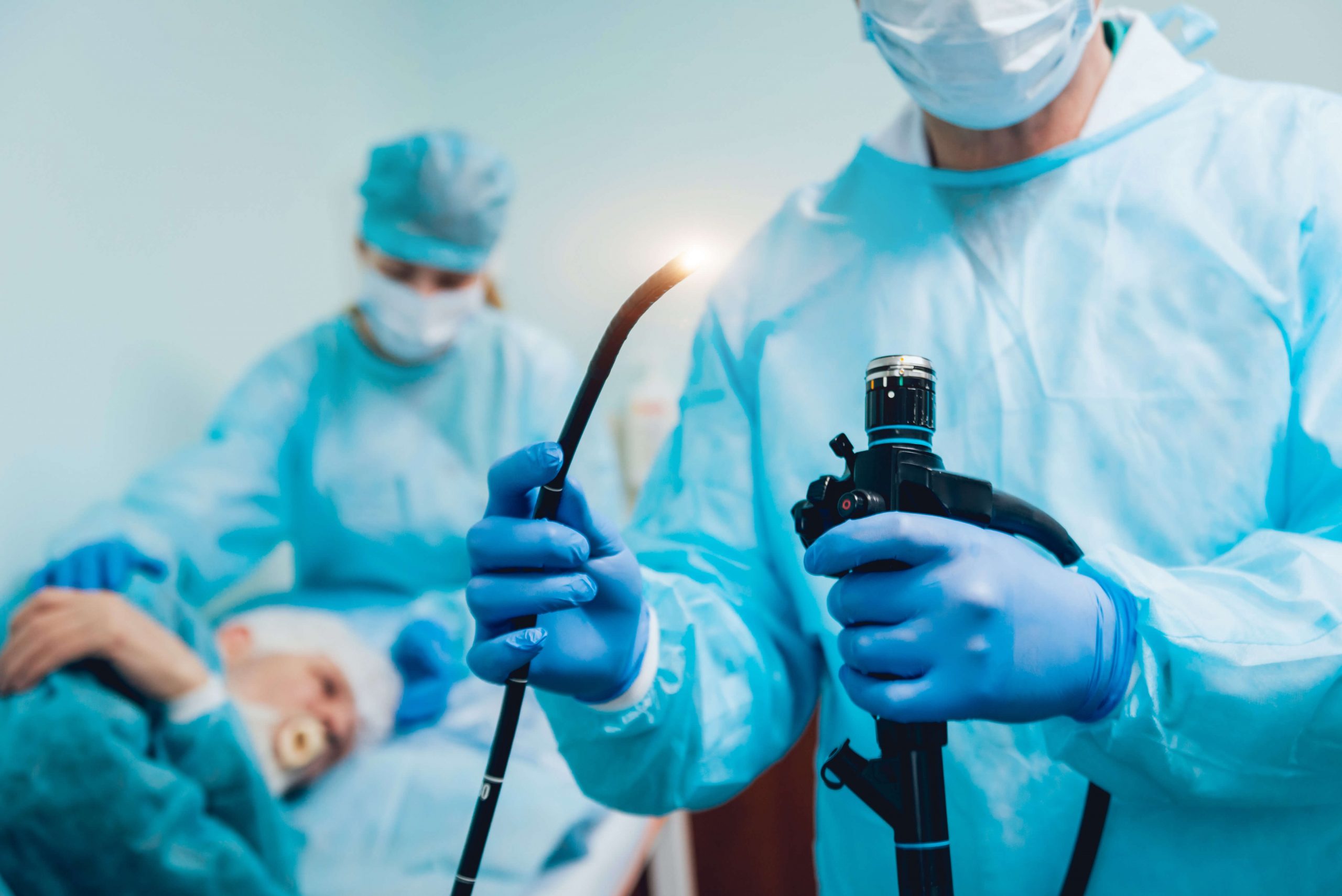


Medically reviewed by Dr. Sim Hsien Lin, Consultant General Surgeon (Colorectal Surgery)

A colonoscopy is a diagnostic process that helps doctors examine the rectum and colon for any abnormalities and disease. During this examination, the doctor uses a long and flexible tube with a built-in camera lens at the tip. The tube, called a colonoscope, measures half an inch in diameter, is carefully inserted through the anus into the rectum and manoeuvres through to the colon.
During this procedure, the doctor may remove any form of abnormal tissue (polyps) using the colonoscope. The tissue samples can then be taken for further examination through a biopsy.
Colorectal cancer is one of the most common types of cancer in Singapore. Research shows that about 1,200 new cases are diagnosed every year. It is also one of the top three leading causes of cancer deaths in Singapore for men and women. Male Chinese Singaporeans are particularly at a higher risk of developing colon and rectal cancer, thus it is important for early diagnosis and treatment.
Regular screening for colon cancer helps detect early signs of adenomatous polyps that may advance to colorectal cancer. Adenomatous polyps go through multiple gene mutations for about 5 to 10 years before finally manifesting in the form of colorectal cancer.
Adenomatous polyps are asymptomatic, making it challenging to detect them unless the patient goes through a colonoscopy. Research shows about 25 per cent of Singaporeans above 50 years old have these polyps, and it is more common as their age increases.
A colonoscopy allows doctors to detect a premalignant phase of colorectal cancer called adenoma. The phase can be treated before it progresses to advanced stages of colorectal cancer which are more serious and chances of treatment are lower. Therefore it is important for individuals to schedule regular screenings to rule out any presence of polyps or early stages of colorectal cancer.
In Singapore, screening is advisable for the following groups with higher risks of colorectal cancer:
Individuals should also be aware of the symptoms of colorectal cancer, which includes:
Your doctor will usually perform the procedure under sedation. During a colonoscopy, the patient lies on their side but may be asked to adjust their position to let the doctor move the colonoscope through the colon, with minimal discomfort. In most cases, a colonoscopy will lead to an accurate diagnosis of conditions in the colon.
If the doctor finds no polyps, the process should take around 20 to 30 minutes. However, if it involves the removal of polyps, this may take an hour or more depending on the size and number of polyps found.
Prior to the process, your doctor will need to know if you are under any form of blood-thinning medications. This is because the procedure can sometimes lead to bleeding if the patient is under any blood-thinning medications like:
Bowel preparation and cleansing of faecal matter is also important before a colonoscopy exam. This enables the doctor to have a better and clearer view of your colon. For better results, you will be instructed to take the following steps:
A colonoscopy is generally a safe procedure. However, rare cases of bleeding, reaction to the sedative or perforation of the colon may happen. After the procedure, the doctor will move you to an observation ward, and you will remain under observation for about one hour or more as the sedative wears off.
You should be ready for discharge within one to two hours. Your doctor will deliver and explain the results of your colonoscopy before discharge. However, in cases where a biopsy is necessary, you might need to return to review the histology report, where the doctor will disclose and explain the biopsy results.
Although colorectal cancer is common among the older generation, this does not mean younger individuals are spared. It can happen at any age, depending on your lifestyle as well as risk factors.
This emphasises the need to go for screening at the earliest opportunity. It is important to note that the early stages of colorectal cancer usually do not present any symptoms, and by the time there are symptoms, it may be too late for cure.
Screening and diagnosis at early stages increase the likelihood of the treatment leading to full recovery. A colonoscopy is a painless and quick process, since the patient is under sedation. If you have higher risks or are experiencing symptoms of colorectal cancer, it is advisable to go for a colonoscopy as a screening method for prevention and early diagnosis of colorectal cancer.




Dr. Sim Hsien Lin is a specialist colorectal surgeon in Singapore with over 10 years of experience in colorectal surgery. Her sub interests include laparoscopic colorectal surgery, transanal endoscopic microsurgery (TEMS), surgical management of piles, inflammatory bowel diseases and complex anal fistulas.
Read Full BioCome visit our clinic, which are equipped with modern and updated equipment, and a team that will take care of all your needs.
Dr. Sim became a Fellow of the Royal College of Surgeons (Edinburgh) in 2011, winning the Gold Medal award at the FRCS Exit Examination that year.
Dr. Sim firmly believes that transdisciplinary care is the key to supporting both the elderly and complex patients through their perioperative and recovery journey.
Dr. Sim firmly believes that transdisciplinary care is the key to supporting both the elderly and complex patients through their perioperative and recovery journey.
Book An AppointmentPlease fill up this form and we’ll get back to you shortly!

For quicker response, call us at+65 6261 9227

Chat with our friendly clinic staff through WhatsApp!